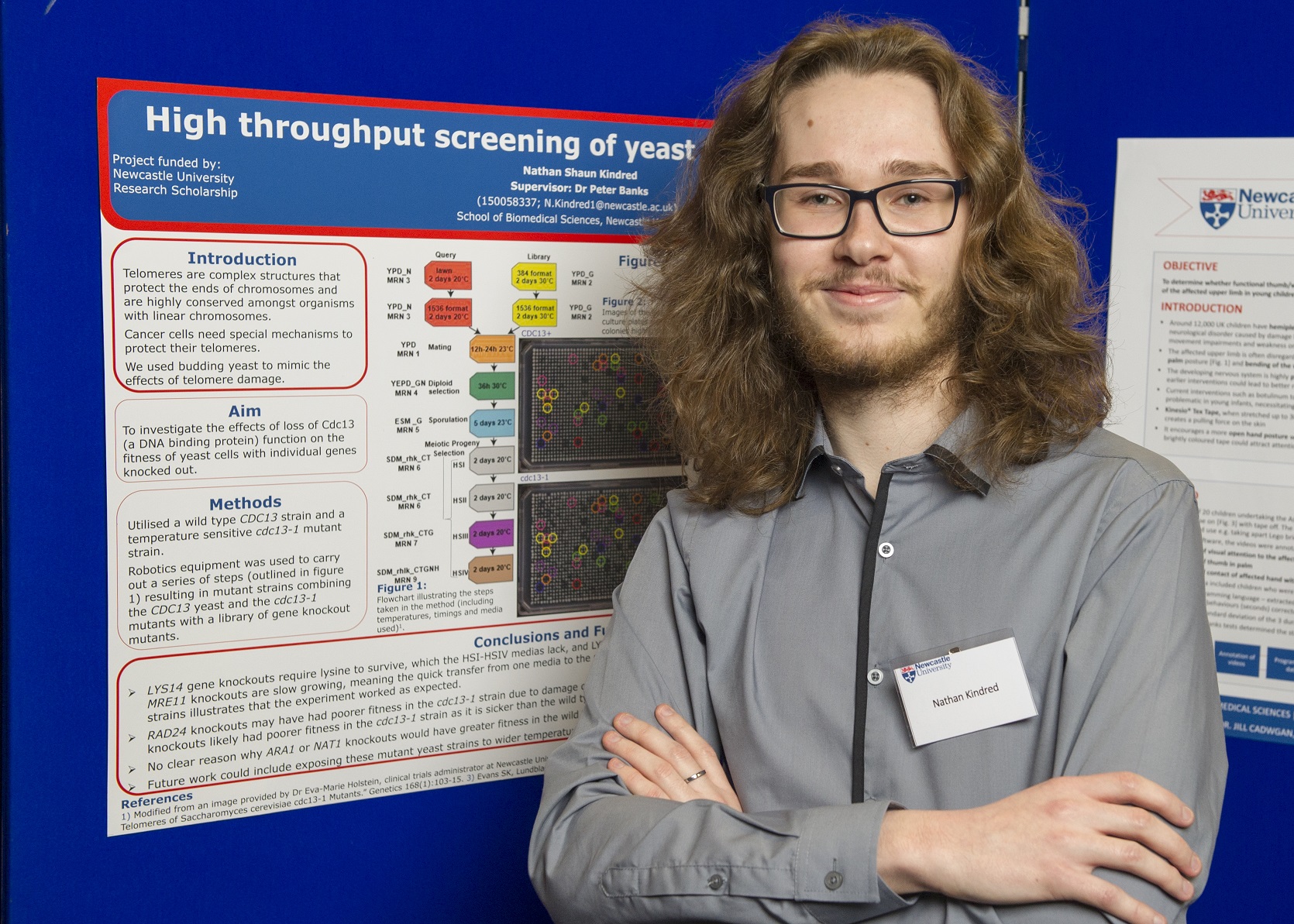2017 Participants
 Nathan Kindred
Nathan Kindred
The ends of human chromosomes, known as telomeres, are complex structures that protect the chromosome from damage. Despite the protective role of these structures human chromosome ends shorten over time. This is of particular relevance to cancer cell progression in which cells divide uncontrollably, lose their telomeres and should become inviable due to resultant chromosome instability. However, cancer cells find alternative ways to protect their telomeres and remain viable. The DNA binding protein cdc13 is known to be involved in telomere protection. A mutant form of this protein (cdc13-1) fails to protect telomeres at high temperatures, resulting in telomere damage which then stops cell division. This study used budding yeast, both with and without the cdc13-1 mutation, as a model organism to investigate the effects of telomere damage on cells. This was done in order to explore potential mechanisms cancer may use to progress while keeping rapidly dividing cells viable.
Funding source: Newcastle University
Supervisor: Dr Peter Banks
